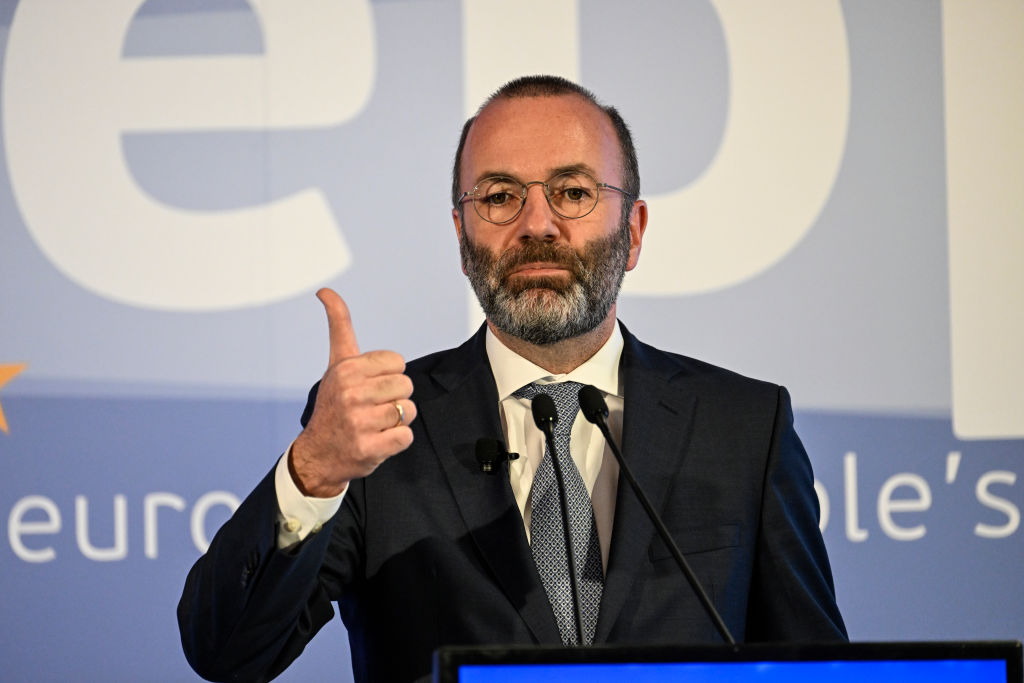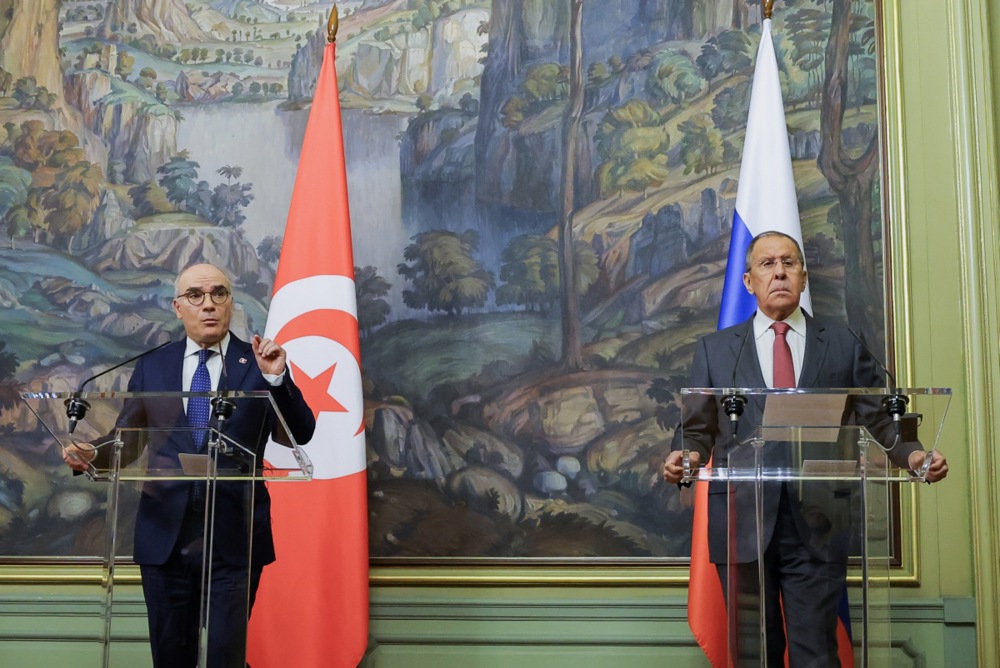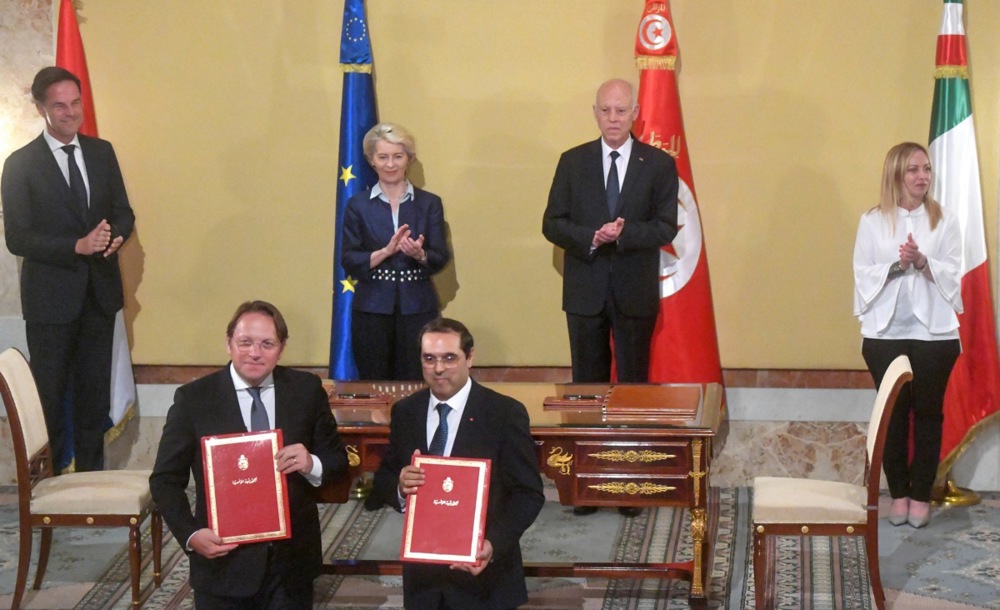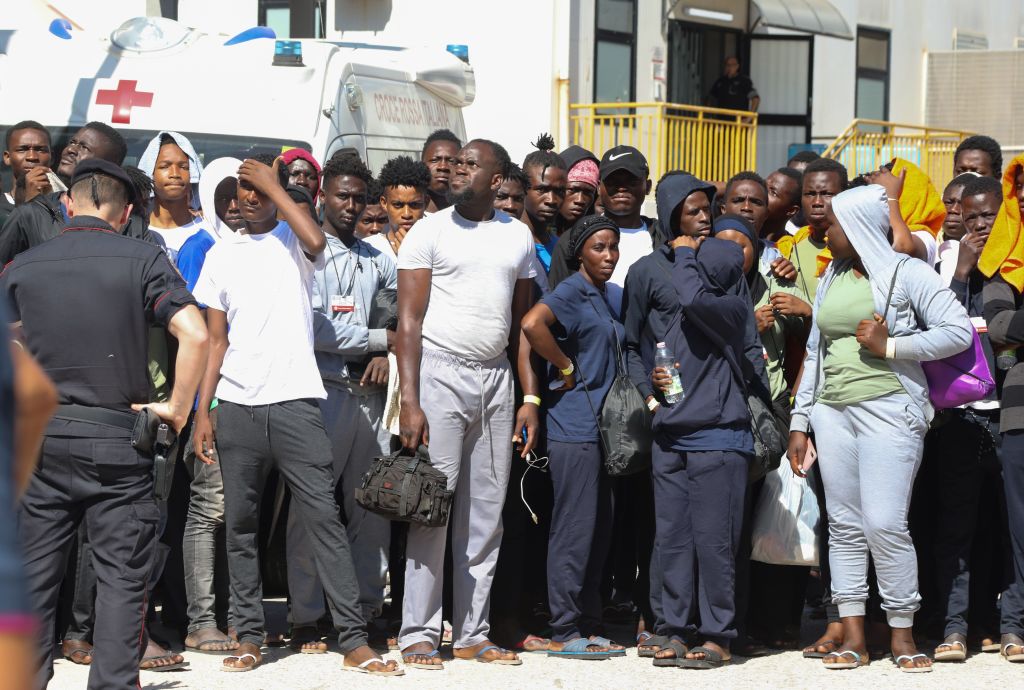According to the European Ombudsman (EO) , the so-called “EU watchdog”, the European Commission has not been transparent about the human rights information it relied on before signing a migrant agreement with Tunisia.
“Concerns have been raised about the nature of the MoU [Memorandum of Understanding] in general and about support for border control initiatives in particular, especially in the light of deeply disturbing reports regarding how the Tunisian authorities deal with migrants,” the Ombudsman wrote on October 22.
In the summer of 2023, the European Union and Tunisia signed an MoU designed to limit the number of migrants crossing the Mediterranean.
It officially aimed to “crack down on criminal networks of smugglers and traffickers” – end illegal immigration – but human-rights organisations said from the beginning that in doing a deal with Tunisia, the EU was doing a deal with a country accused of abusing migrants.
When the agreement was signed, European Ombudsman Emily O’Reilly asked the commission a series of questions about how it expected to monitor the human-rights aspect.
European Parliament members clashed in the plenary in Strasbourg on Tuesday over the EU’s controversial migration deal with Tunisia. https://t.co/cr3Ycm4BeL
— Brussels Signal (@brusselssignal) September 13, 2023
On October 23, O’Reilly was highly critical of the commission, referring to what she called its “failure to inform public” on human-rights risks regarding the EU-Tunisia agreement.
“The Ombudsman found that despite repeated claims that it was not required to conduct an explicit human rights impact assessment (HRIA) before signing the agreement, the Commission had in fact completed a similar assessment exercise,” she wrote.
O’Reilly said it was positive that the Commission had verified the human-rights situation in Tunisia but added that “a formal human rights impact assessment of the deal would have been preferable”.
The Ombudsman called on the commission to publish a summary of the relevant risk management exercise on its website.
She stressed that the body had to ensure EU funds did not support actions that violated human rights.
Apparently, the commission has not published concrete criteria for when it would suspend EU funding to projects in Tunisia due to human rights violations, something the Ombudsman said she wanted to see changed.
The Ombudsman also said she wanted the commission to encourage organisations monitoring human rights in Tunisia to improve complaints mechanisms to which individuals could report alleged violations of their human rights in the implementation of the funds.
Noting that it was difficult for the public to have a complete picture of the human-rights situation, the Ombudsman asked the commission to compile information about monitoring it in a single document, publish that and update it regularly.
“Given recent reports of significant problems on the ground, this has assumed even greater importance,” O’Reilly wrote.
Reacting to the Ombudsman, an EC spokesperson told Brussels Signal that the Commission took note of the decision to close its own-initiative inquiry.
“We also take note of the European Ombudsman’s recommendations and welcome the fact that the EO has recognised that the various monitoring measures described by the Commission, should produce a periodic assessment of the human rights impact of actions under the MoU” with Tunisia.
“The EU is a strong promoter and strongly advocates for the respect of Human Rights across the world, including in Tunisia,” the spokesperson added.
“The Commission takes note of the decision and suggestions for improvement of the European Ombudsman and reiterates its full commitment to transparency and accountability.”
The spokesperson added that the EC “stands ready to consider ways of possible improvement, specifically related to human rights monitoring”.
The agreement between the EU and Tunisia has enabled the EC to initiate financial aid of up to €900 million for the Norrth African country, which is in economic and political dire straits.
Tunisia’s President Kais Saied has in the past been accused of stoking “anti-black racism” in the country.
The NGO Amnesty International described Saied as inciting a “wave of violence against Black Africans” in 2023.
That came after the Tunisian leader decried what he called the “hordes of irregular migrants [coming] from Sub-Saharan Africa”, describing them as bringing “violence, crime and unacceptable practices”.
Human Rights Watch EU director Philippe Dam said Tunisia had accused the EC of having “comfortable business-as-usual with Tunisia’s repressive leaders”.
“Boosting dictatorships can never of in Europe’s interest,” Dam said, adding that European Parliament “scrutiny is more needed than ever”.
But no thanks to @HelenaDalli for tedious banalities that simply confirmed #TeamEurope's & @VonDerLeyen's comfortable business-as-usual w/ #Tunisia's repressive leaders.
Boosting dictatorships can never go in #EU's interest. @EuroParl_EN's scrutiny more needed than ever. pic.twitter.com/udYe7T8p0o
— Philippe Dam (@philippe_dam) October 23, 2024





